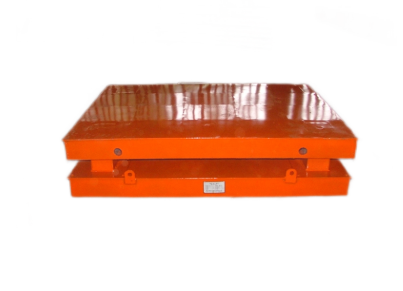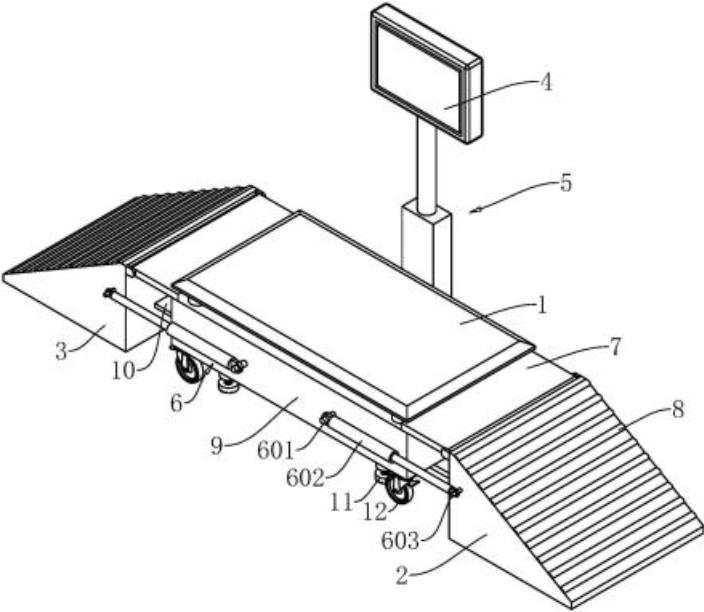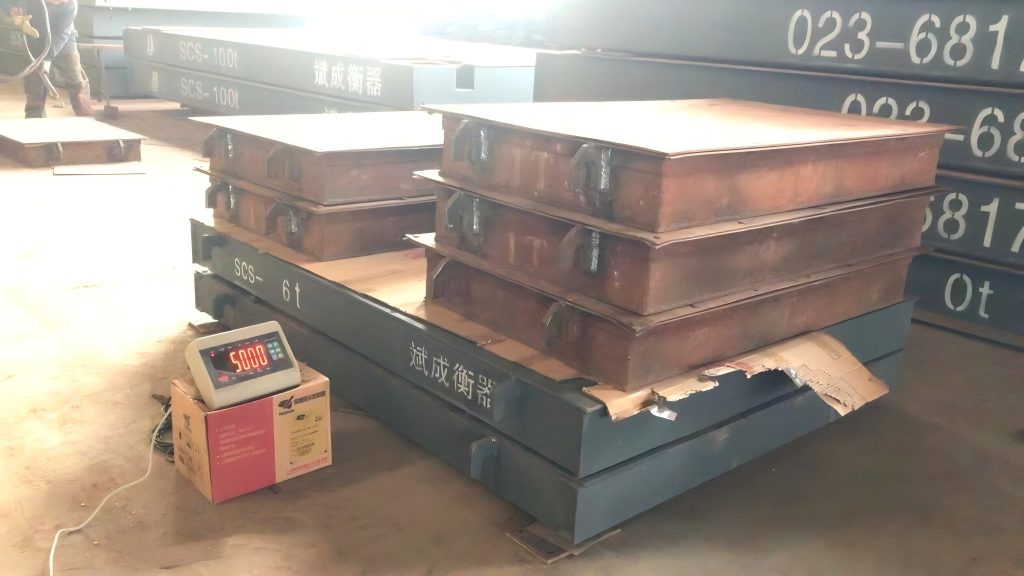What Is the Difference Between Industrial Bench Scale and Floor Scale?
Industrial scales are the backbone of accurate and efficient weight measurement across countless industries. But with an array of options available, selecting the perfect one can be a challenge. Two prominent choices are bench scales and floor scales, each designed to excel in specific applications. Let’s explore these industrial workhorses and explore the key factors that differentiate them.
What Is a Industrial Bench Scale?
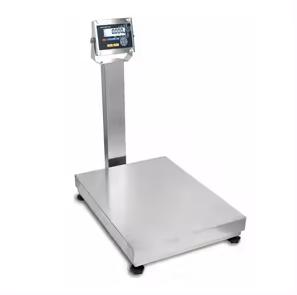
A industrial bench scale stands as a compact and adaptable platform crafted to rest conveniently on flat surfaces like workbenches or counters. Think of it as a digital balance amplified – these scales boast a weight capacity that typically spans from a few kilograms to several hundred pounds, rendering them perfectly suited for a multitude of objects and environments.
The practicality of industrial bench scales extends across various industries, finding indispensable utility in a range of applications:
- Warehouses and production lines rely on bench scales to meticulously weigh individual parts, components, or packaged goods. This meticulous weighing process ensures stringent quality control measures are met and facilitates the maintenance of precise inventory records.
- Laboratories leverage bench scales for the precise measurement of chemicals, samples, and research materials. In environments where even minor weight discrepancies can have significant repercussions on experimental outcomes, the reliability of bench scales becomes paramount.
- In shipping and receiving departments, bench scales play a crucial role in verifying the weight of packages. This verification ensures accurate shipping costs, thereby mitigating the risk of potential customer billing errors and fostering trust in business transactions.
- Retail stores employ bench scales to efficiently weigh bulk items such as fruits, vegetables, or other products sold by weight. By integrating these scales into checkout processes, retailers can streamline operations, expedite transactions, and minimize waste.
In essence, bench scales represent a versatile and indispensable tool across various sectors. Their ability to deliver precision, efficiency, and reliability makes them essential for tasks ranging from quality control in warehouses to research in laboratories and customer service in retail environments.
What Is a Industrial Floor Scale?
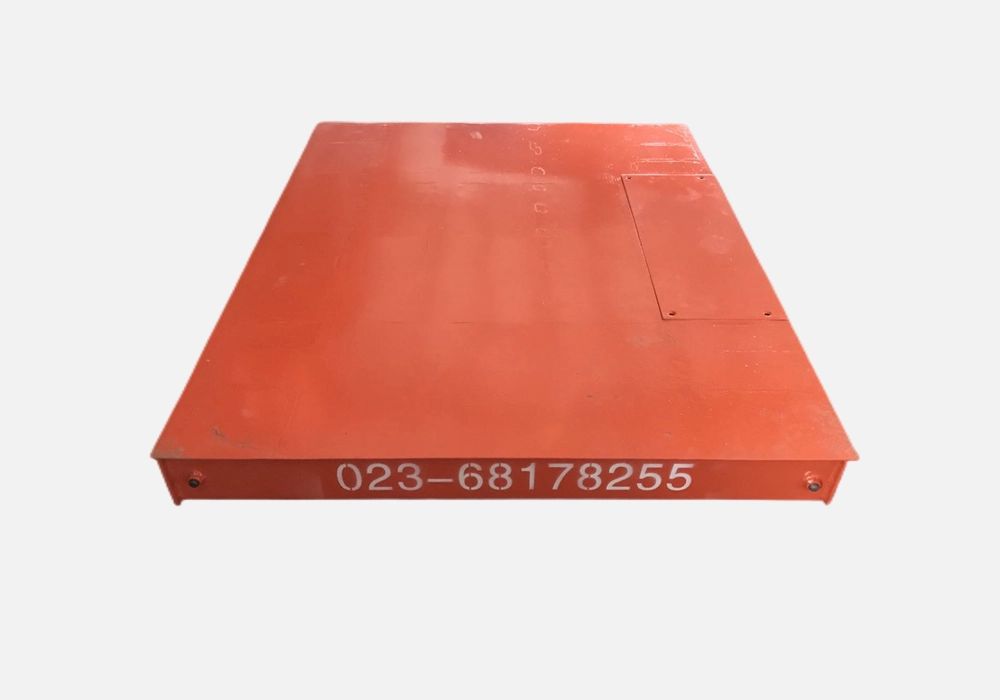
A Industrial floor scale stands as a stalwart in the realm of weight measurement, engineered to tackle heavy-duty tasks with unwavering strength. These formidable platforms are crafted to be positioned directly on the ground, boasting robust construction capable of withstanding substantial weight capacities that often span from thousands to tens of thousands of pounds.
Picture a colossal industrial counterpart to a humble bathroom scale – floor scales emerge as the quintessential solution for demanding weighing needs across diverse industries:
- Industrial Facilities: Within industrial settings, floor scales take center stage in meticulously measuring the weight of pallets, heavy machinery, or sizable components. Their precision ensures safety during transportation and production processes, safeguarding both personnel and equipment.
- Warehouses: In warehouses bustling with incoming and outgoing shipments of substantial goods, floor scales play a pivotal role. By efficiently weighing these loads, businesses can effectively manage inventory, streamline logistics, and maintain optimal warehouse operations.
- Shipping and Receiving Docks: At shipping and receiving docks, accuracy is paramount. Floor scales provide the means to precisely weigh trucks, trailers, and other vehicles laden with cargo, ensuring compliance with weight regulations and proper load distribution for safe transit.
- Agriculture: In the agricultural sector, floor scales facilitate the effective weighing of livestock, crops, or bulk materials such as grains and fertilizers. By streamlining weighing processes, these scales contribute to operational efficiency and help farmers optimize yields.
In essence, floor scales stand as stalwart allies across industries, embodying resilience and precision to meet the demanding requirements of heavy-duty weighing applications. Whether in industrial facilities, warehouses, shipping docks, or agricultural settings, these robust platforms play an indispensable role in ensuring accuracy, safety, and efficiency in weight measurement operations.
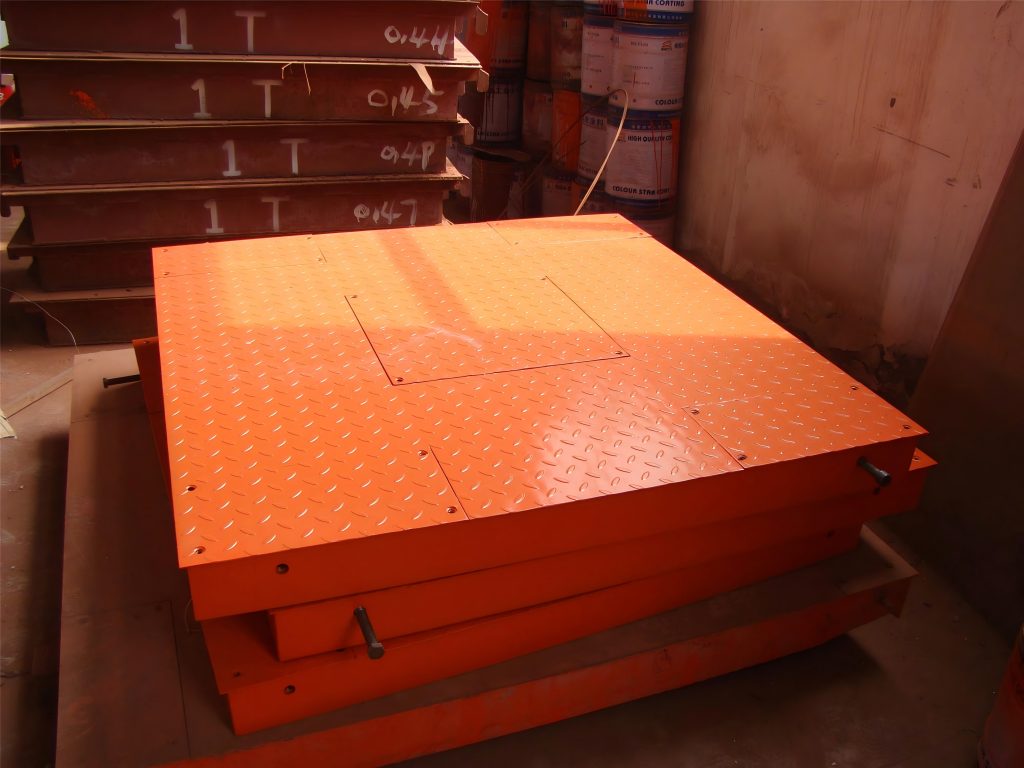
Key Differences Between Industrial Bench Scales and Floor Scales
While both serving the purpose of weight measurement, bench scales and floor scales cater to distinct needs. Here’s a breakdown of their key differences to help you choose the right tool for the job:
| Feature | Bench Scale | Floor Scale |
| Capacity | Lower weight capacity (typically up to a few hundred pounds) | Higher weight capacity (thousands to tens of thousands of pounds) |
| Size and Portability | Compact and portable, easy to move and place on surfaces | Larger and fixed to the floor, less portable |
| Typical Applications | Weighing individual items, parts, or packages | Weighing heavy objects, pallets, vehicles, or bulk materials |
| Placement | Placed on a workbench, counter, or table | Placed directly on the floor |
| Additional Considerations | May offer features like digital displays, counting functions, and connectivity | May have ramps or built-in platforms for easier loading and unloading of heavy objects |
When to Choose the Right Scale?
Selecting the appropriate scale for your weighing needs is crucial, and it hinges upon various factors, primarily the weight of the objects you intend to weigh and the specific application in which the scale will be utilized. Here’s a detailed guide to assist you in making the right decision:
Choosing a Bench Scale
Bench scales are the preferred option when dealing with smaller items, typically those under a few hundred pounds. If your weighing tasks involve objects of relatively modest weight, a bench scale is likely to suffice. These scales are designed for versatility and convenience, making them suitable for a range of applications. Consider opting for a bench scale if:
- Portability is Essential: If you require the flexibility to move the scale around within your workspace or between different locations, a bench scale offers the necessary portability. Its compact design allows for easy relocation, making it suitable for environments where mobility is paramount.
- Work Surface Utilization: Bench scales are specifically engineered to sit comfortably on work surfaces such as counters or tables. If your weighing tasks necessitate a scale that can be conveniently placed on a flat surface within your workspace, a bench scale fits the bill perfectly.
- Budget Considerations: In many cases, bench scales are more affordable than their floor scale counterparts. If cost-effectiveness is a priority without compromising on functionality and accuracy, opting for a bench scale can be a prudent choice.
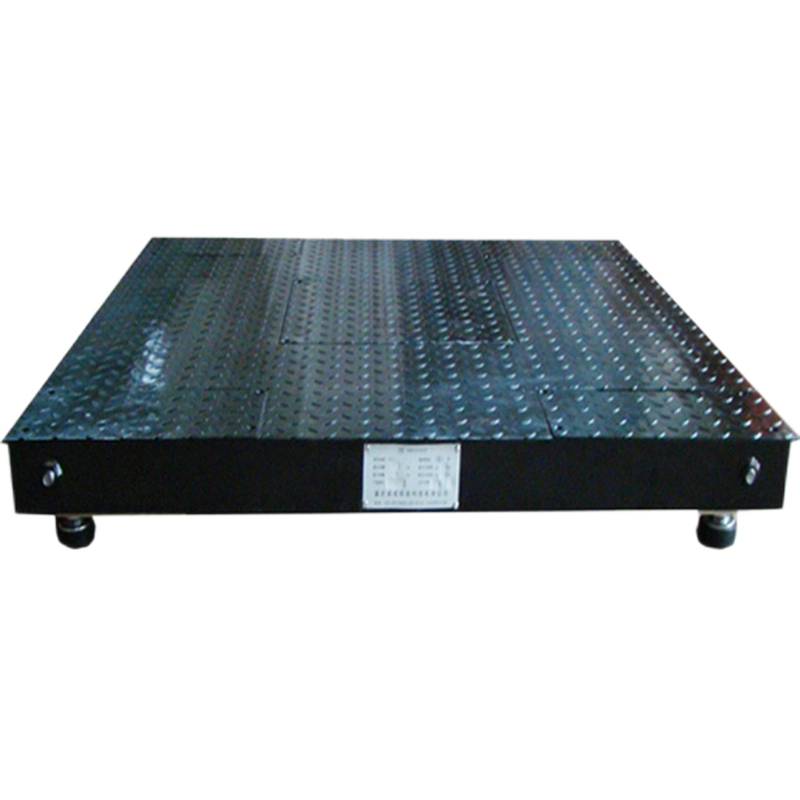
Opting for a Floor Scale
Floor scales are heavy-duty instruments designed to handle substantial weight capacities, exceeding those typically accommodated by bench scales. These robust scales are indispensable in industrial settings, warehouses, and other environments where large and heavy objects require frequent weighing. Consider choosing a floor scale if:
- Dealing with Heavy-Duty Objects: If your weighing tasks involve heavy-duty objects such as pallets, vehicles, or bulk materials that exceed the capacity of a bench scale, a floor scale is essential. These scales boast significantly higher weight capacities, making them suitable for handling large and weighty items with ease.
- Industrial and Warehouse Applications: Floor scales are particularly well-suited for use in industrial facilities and warehouses where heavy objects need to be weighed frequently as part of operational processes. Their robust construction and reliability make them indispensable tools for maintaining efficiency and accuracy in such environments.
Generally, selecting the right scale requires careful consideration of your specific weighing needs, budget constraints, and the demands of your particular application. Whether you opt for a bench scale or a floor scale, ensuring that the chosen instrument aligns with your requirements is paramount to achieving accurate and efficient weighing results.
Conclusion
In today’s industrial landscape, accuracy and efficiency are paramount. At Bincen, we understand the importance of having reliable weighing solutions. That’s why we’ve dedicated ourselves to being a leading manufacturer of industrial platform scales, providing top-quality equipment for a wide range of applications.
We offer a comprehensive selection of floor scales, from robust platforms for heavy-duty weighing to feature-rich models for precise measurement. Whether you’re managing inventory in a warehouse, processing bulk materials in a manufacturing plant, or ensuring compliance with shipping regulations, we have the right floor scale to meet your specific needs.
If you have any interests, please do not hesitate to contact us.

